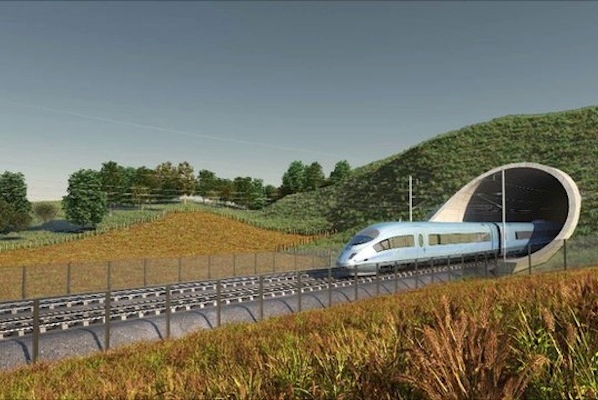The National Audit Office has slammed High Speed 2 today, citing a £3.3 billion ‘black hole’ in the funding plans while suggesting the construction timetable is ‘over-ambitious.’ Not exactly an overwhelming vote of confidence, but does this mean the project is dead in the water?
Far from it — it’s more likely to happen than even an EU referendum. The hybrid HS2 bill (to ensure the project is speedily moved along) was prominent in the Queen’s Speech for this parliamentary session. When I was travelling along the proposed route, even the most ardent fighters have conceded the line will be built. As one remarked to me: ‘all we can do now is maximise our compensation’.
HS2’s commercial challenges have long been known, but that has not halted the project. Ross Clark highlighted the numerous obstacles in the Spectator last June. But, despite the bad feeling in Whitehall Clark noted, HS2 has still made it into Parliament.
Aside from the economic case, the NAO conceded ‘faster and more reliable journeys’ would be an inevitable outcome of the project, which will be welcomed by anyone who has travelled on the Victorian West Coast main line. Although Virgin has done (and will likely continue) to do a sterling job running the line, capacity will eventually stack up as the natural limitations of the route limits the frequency of trains. As Andrew Adonis told the House of Lords, do we want a patch-and-mend solution, or a high-speed line like pretty much any developed nation in the world?
Pursuing such an ambitious project through troubling political and economic times will not be easy. But HS2 is the closest thing the coalition has to a shovel-ready project to connect Britain. Just like the then-controversial Jubilee extension on the London Underground a decade ago, I suspect HS2 will swiftly become integrated into our everyday lives and the case will eventually make itself.






Comments